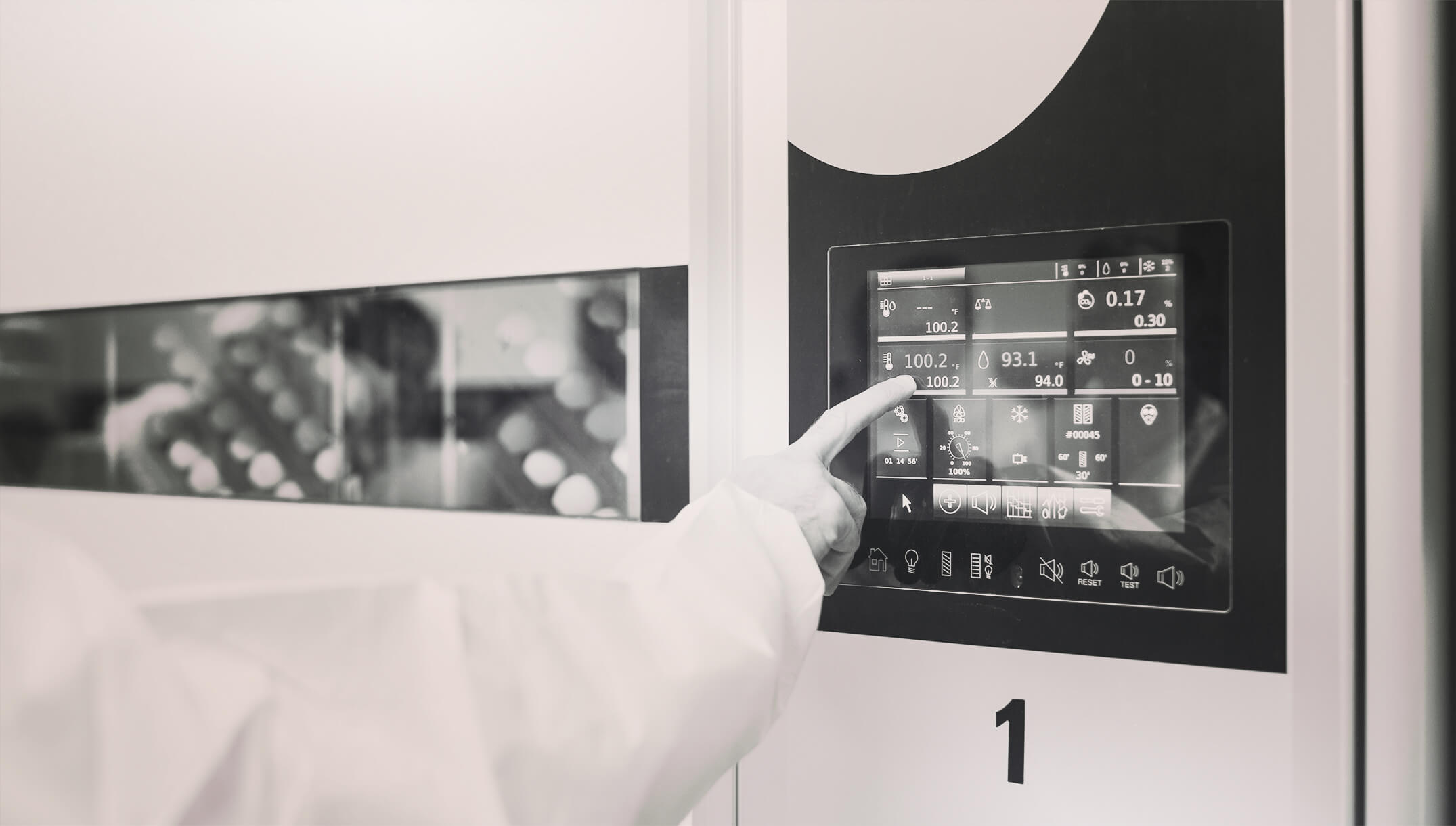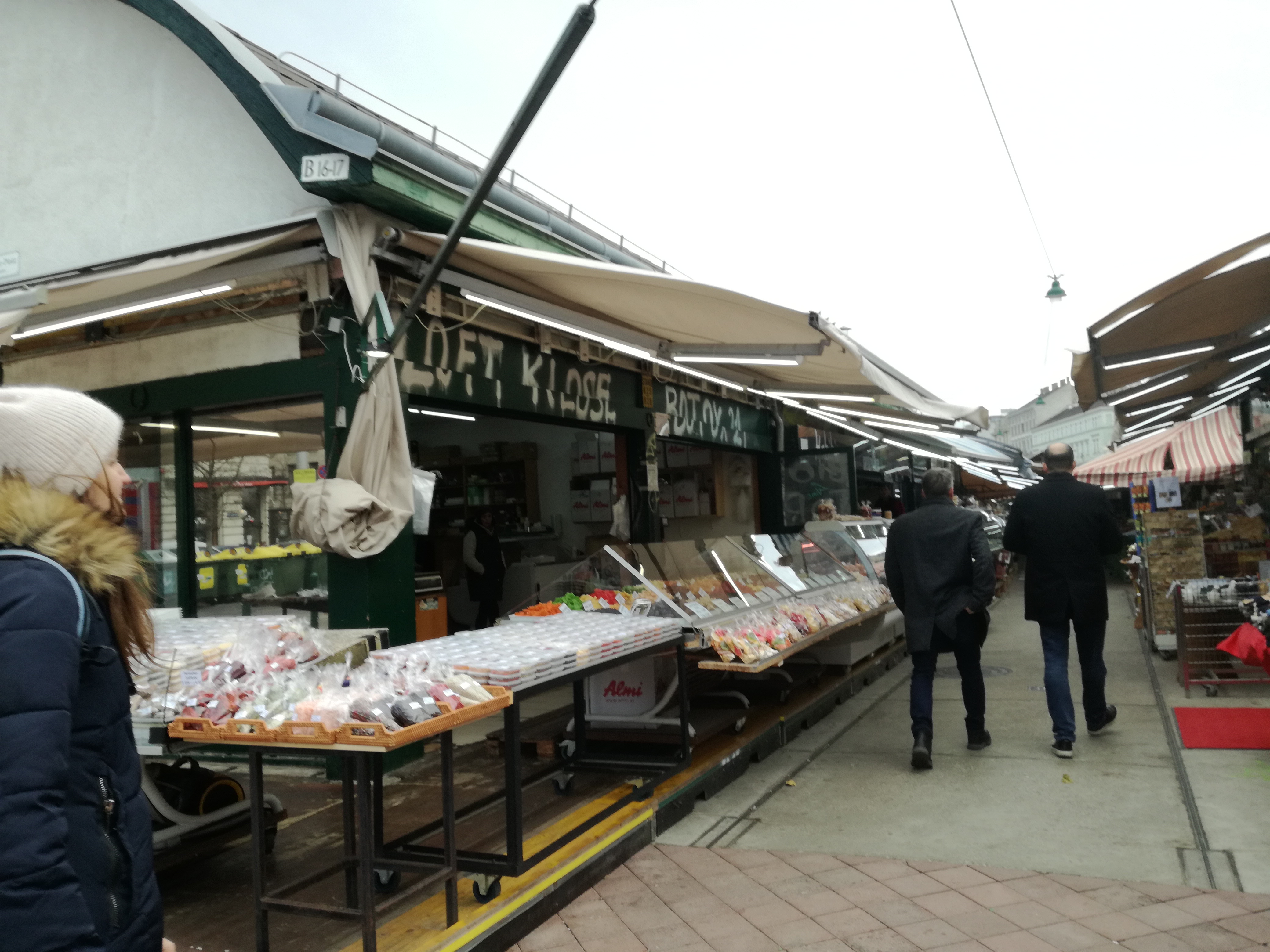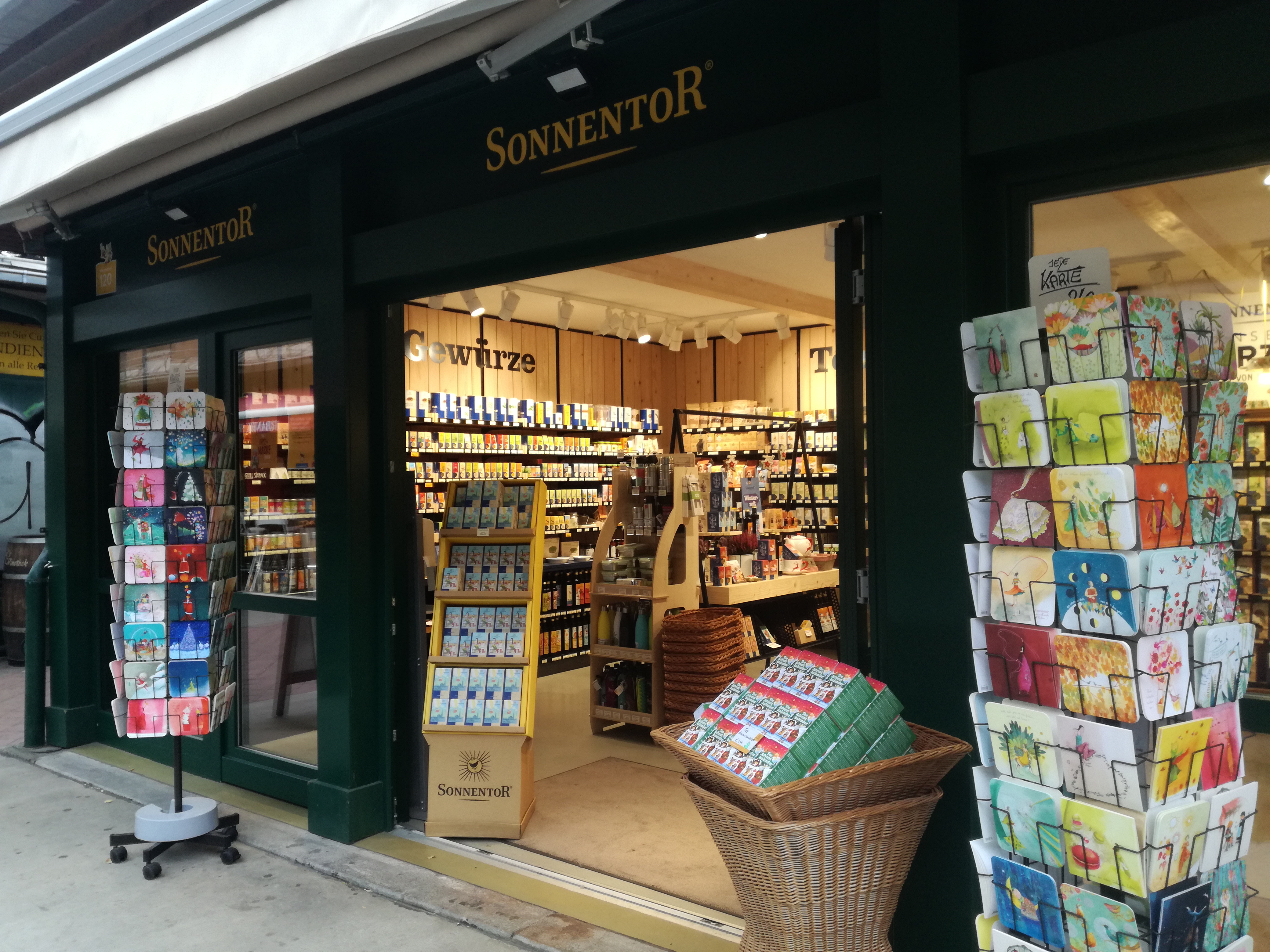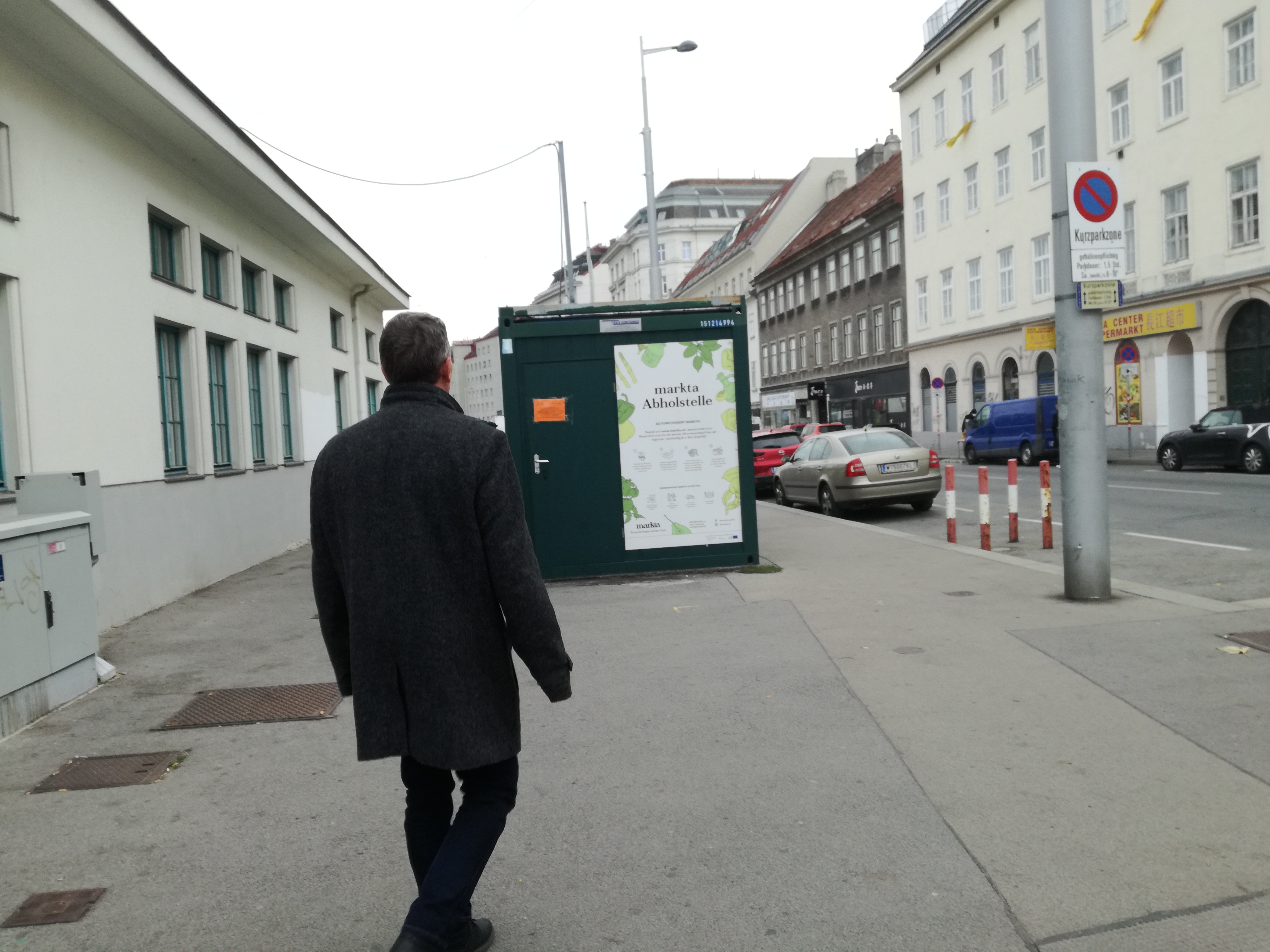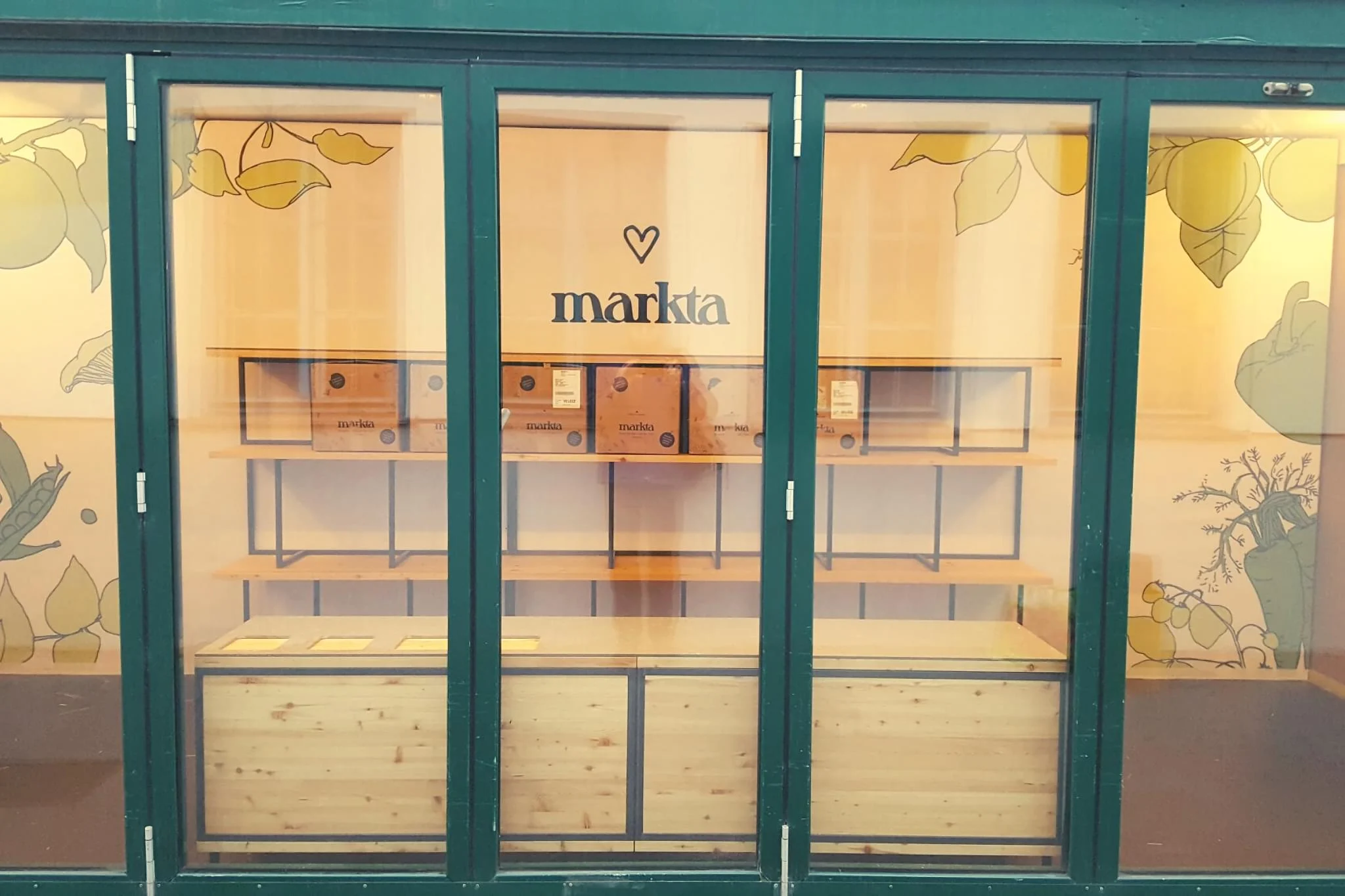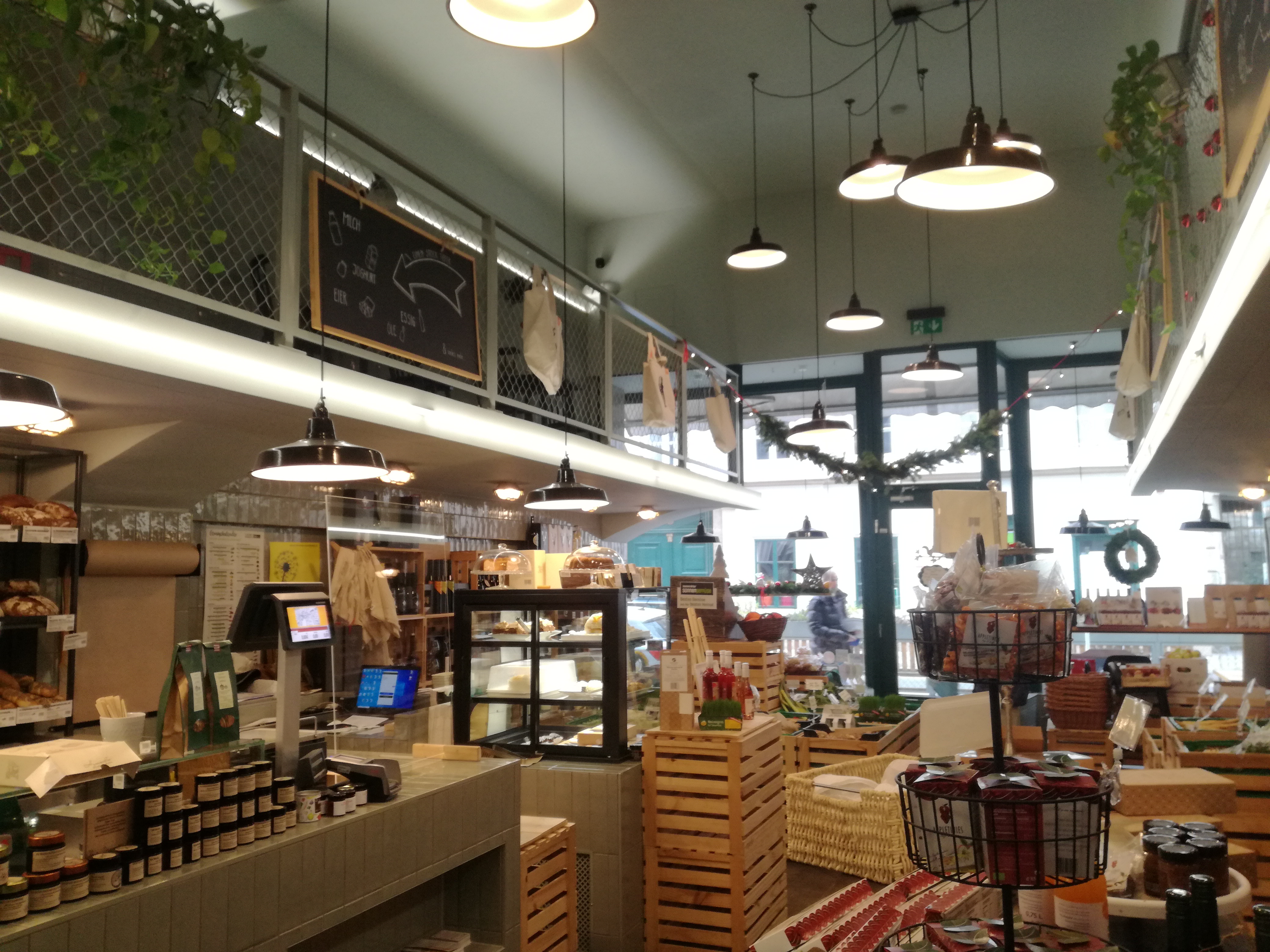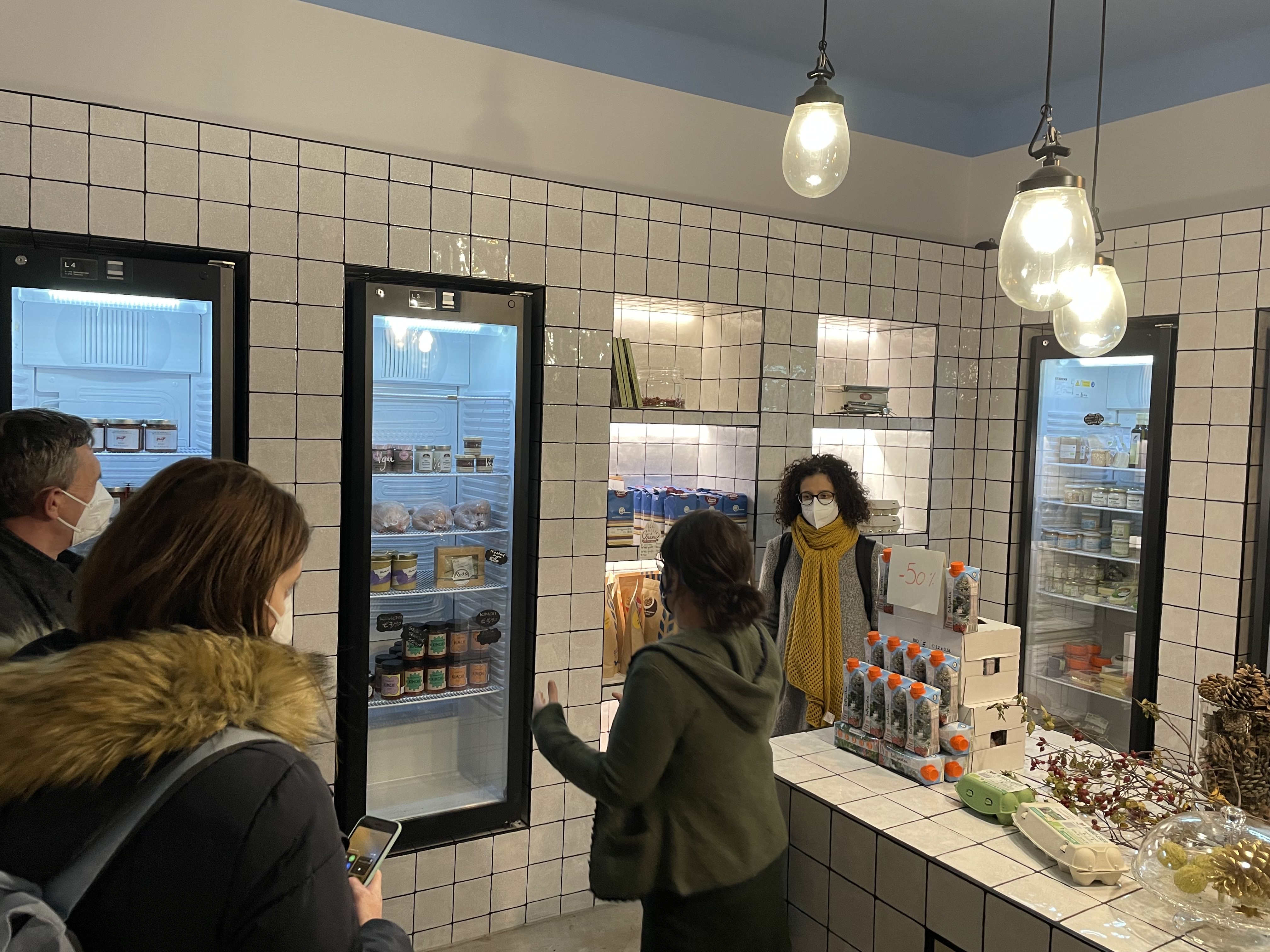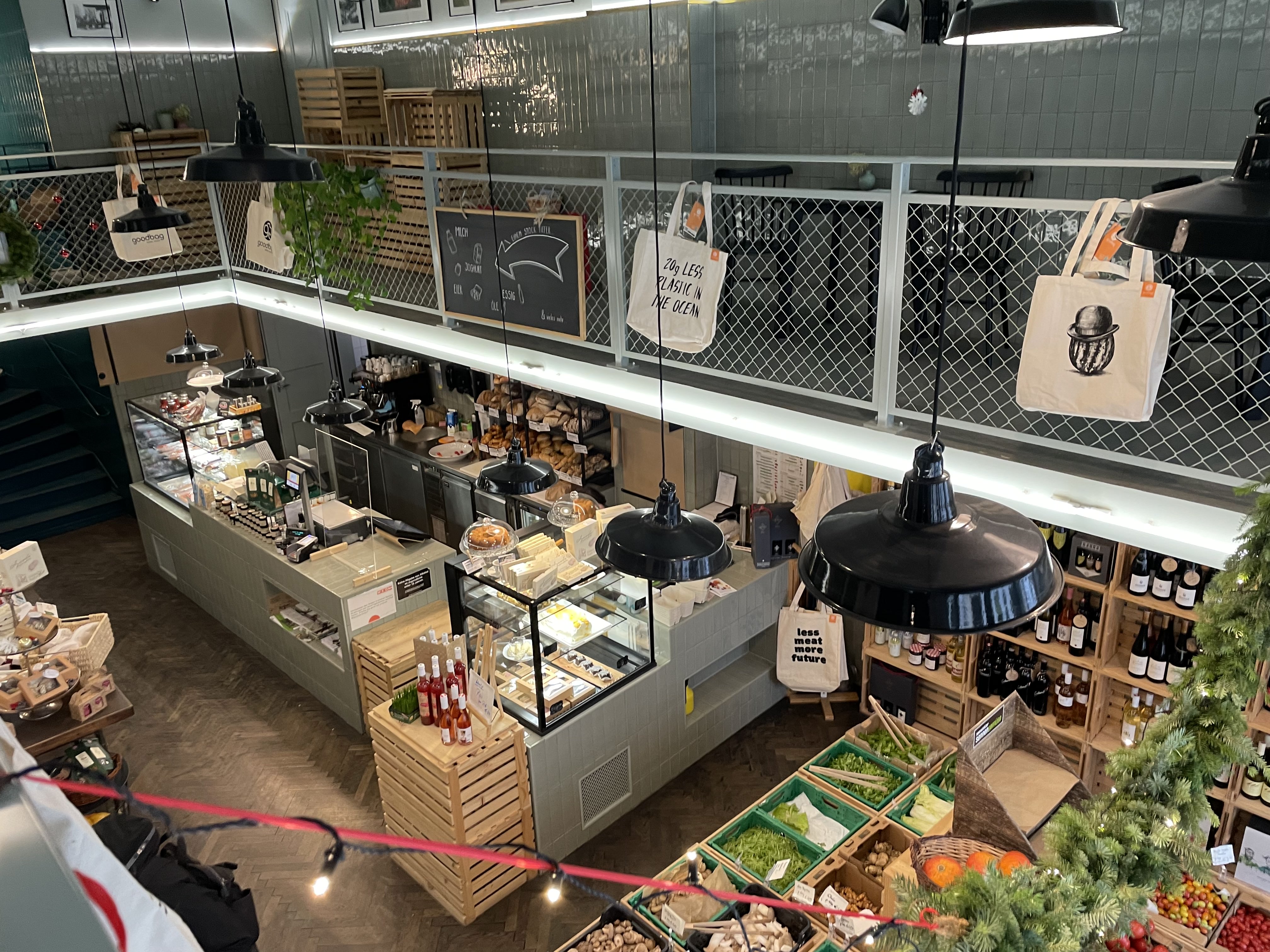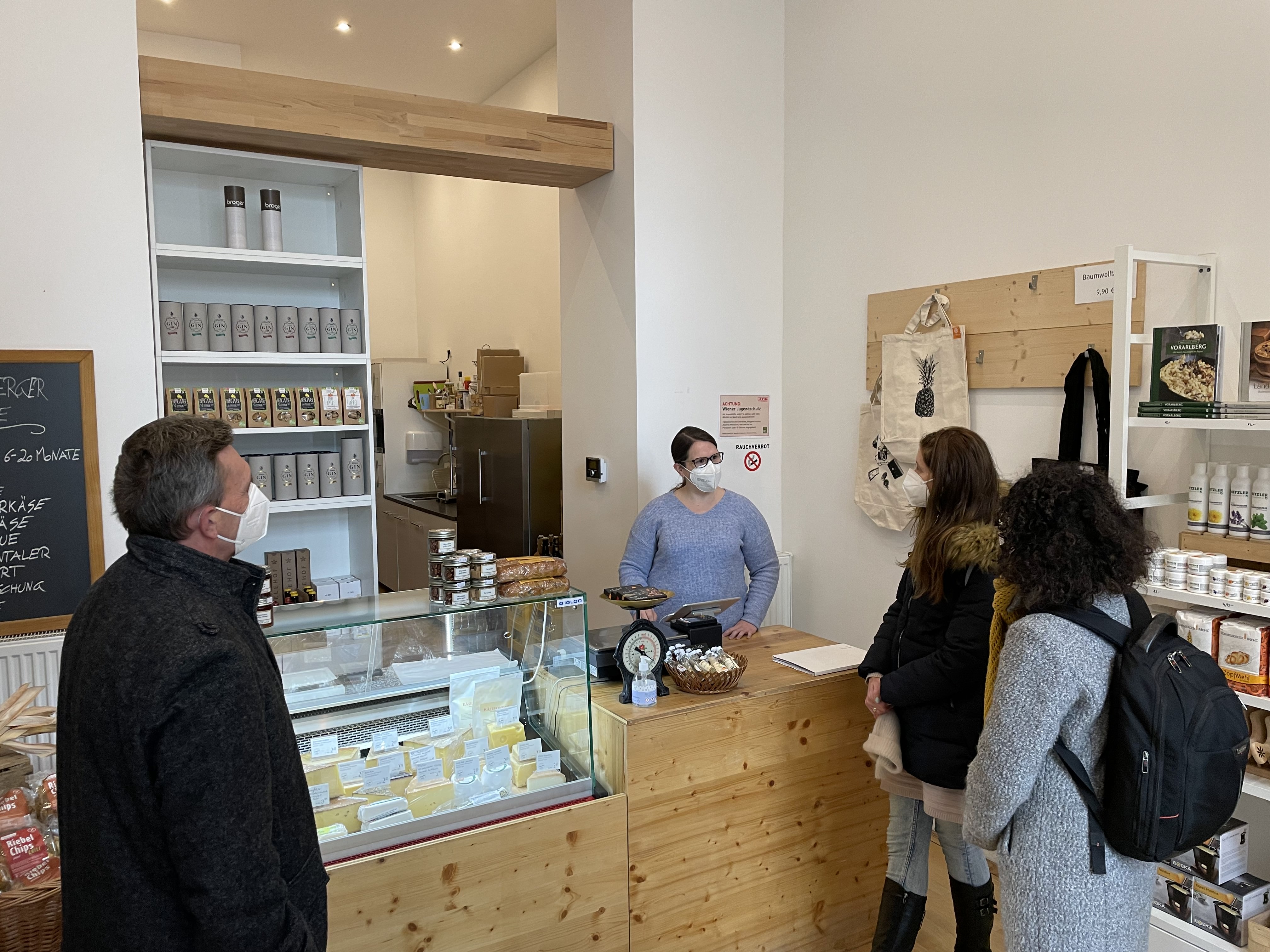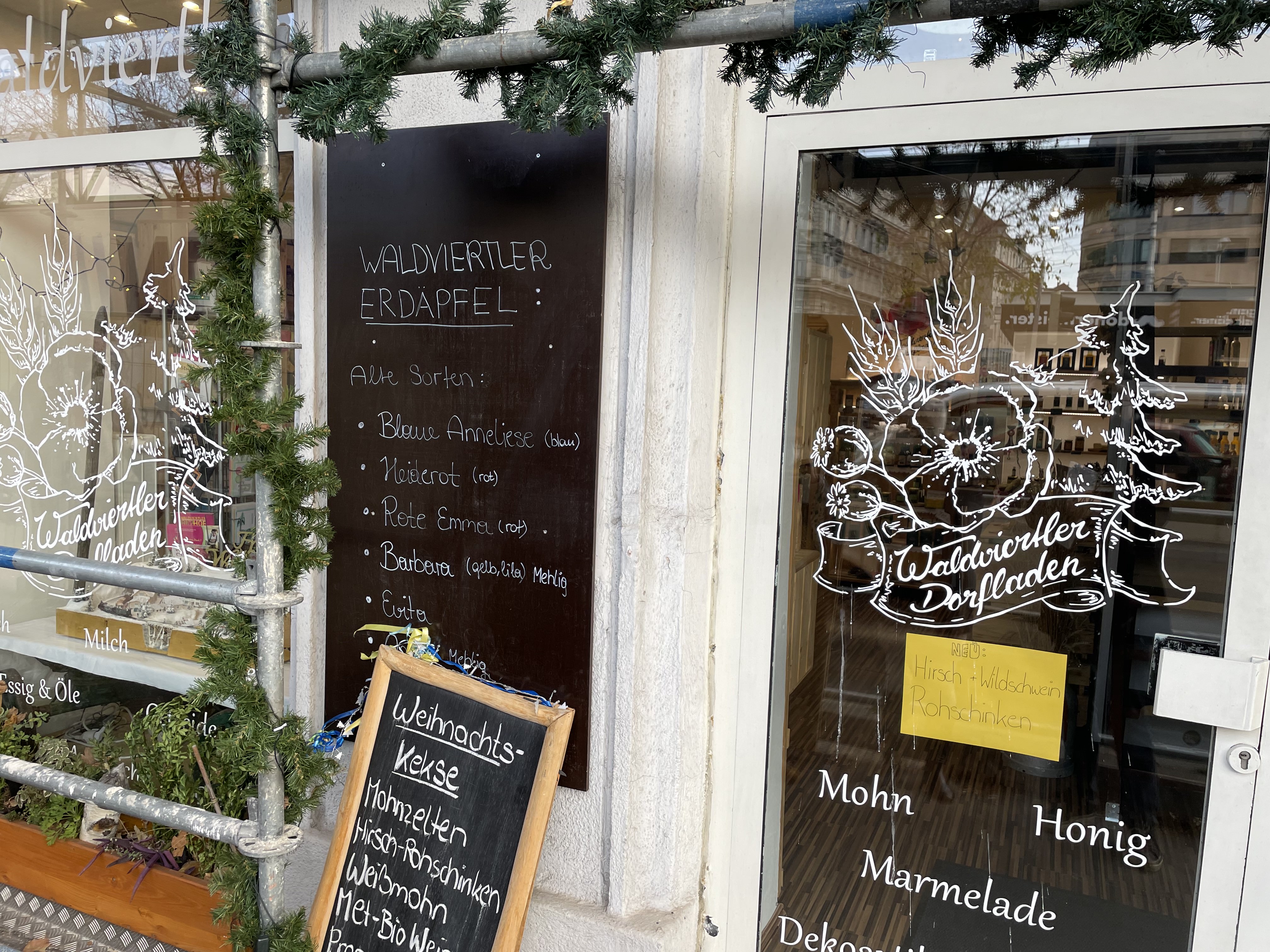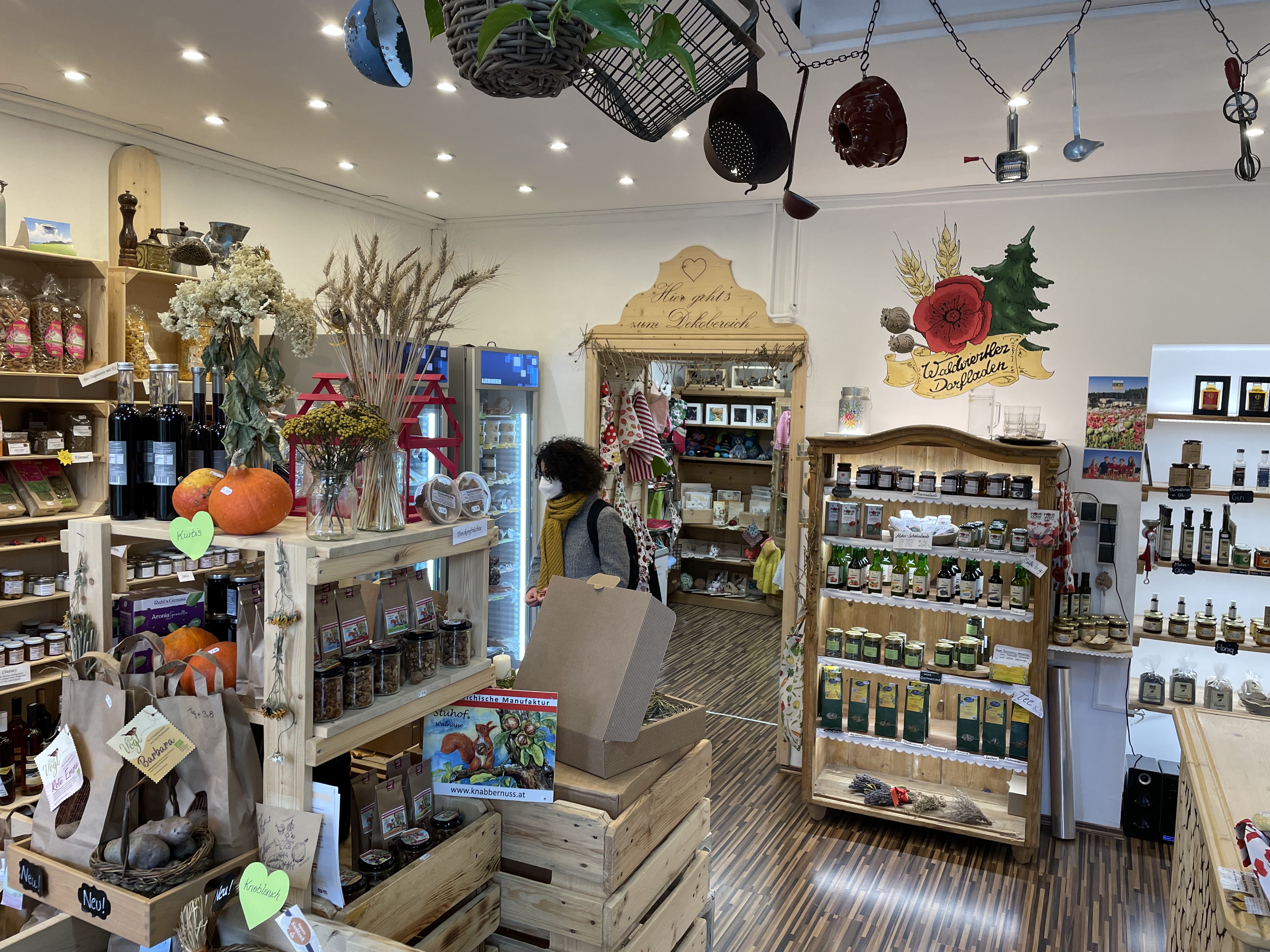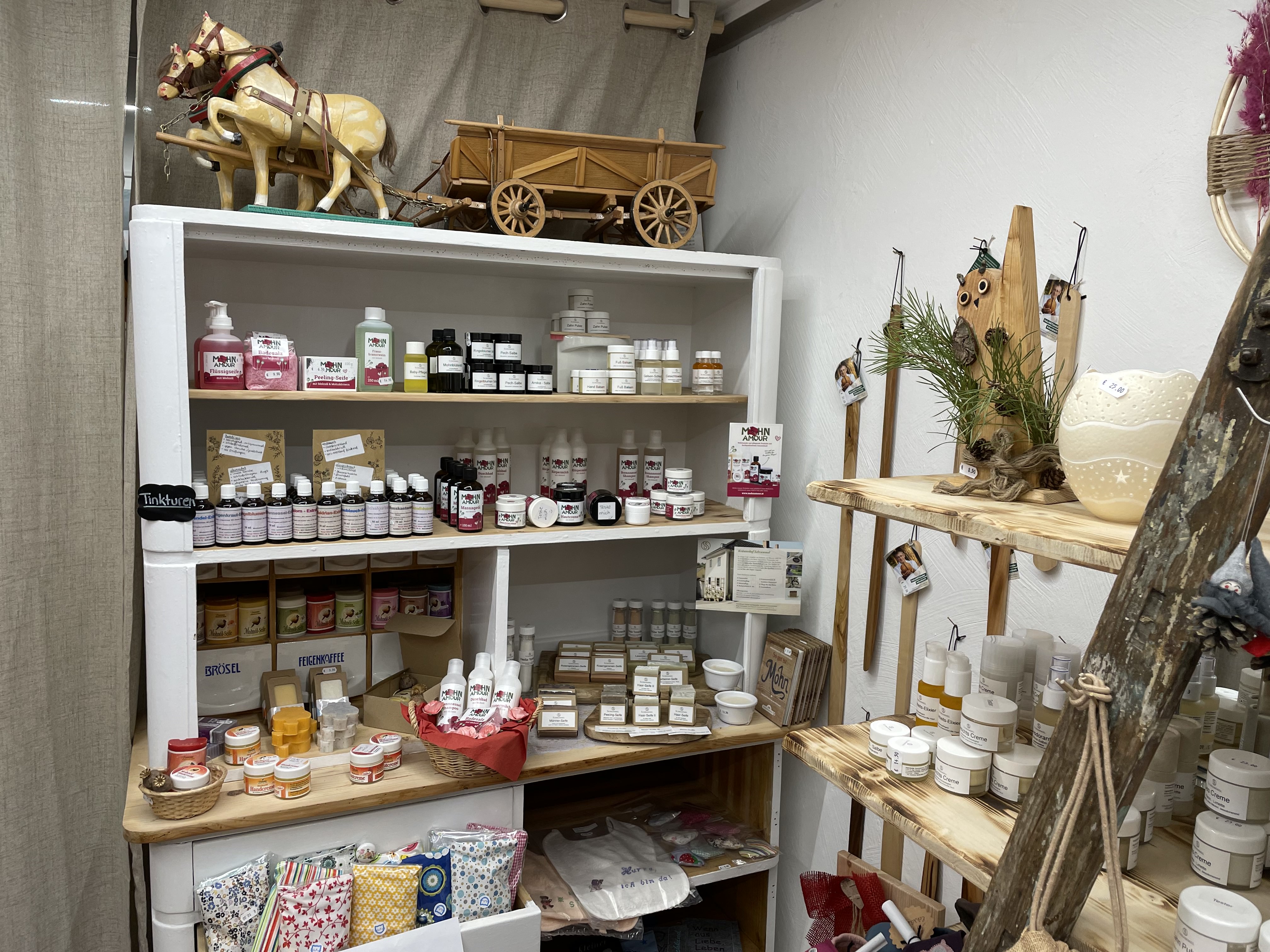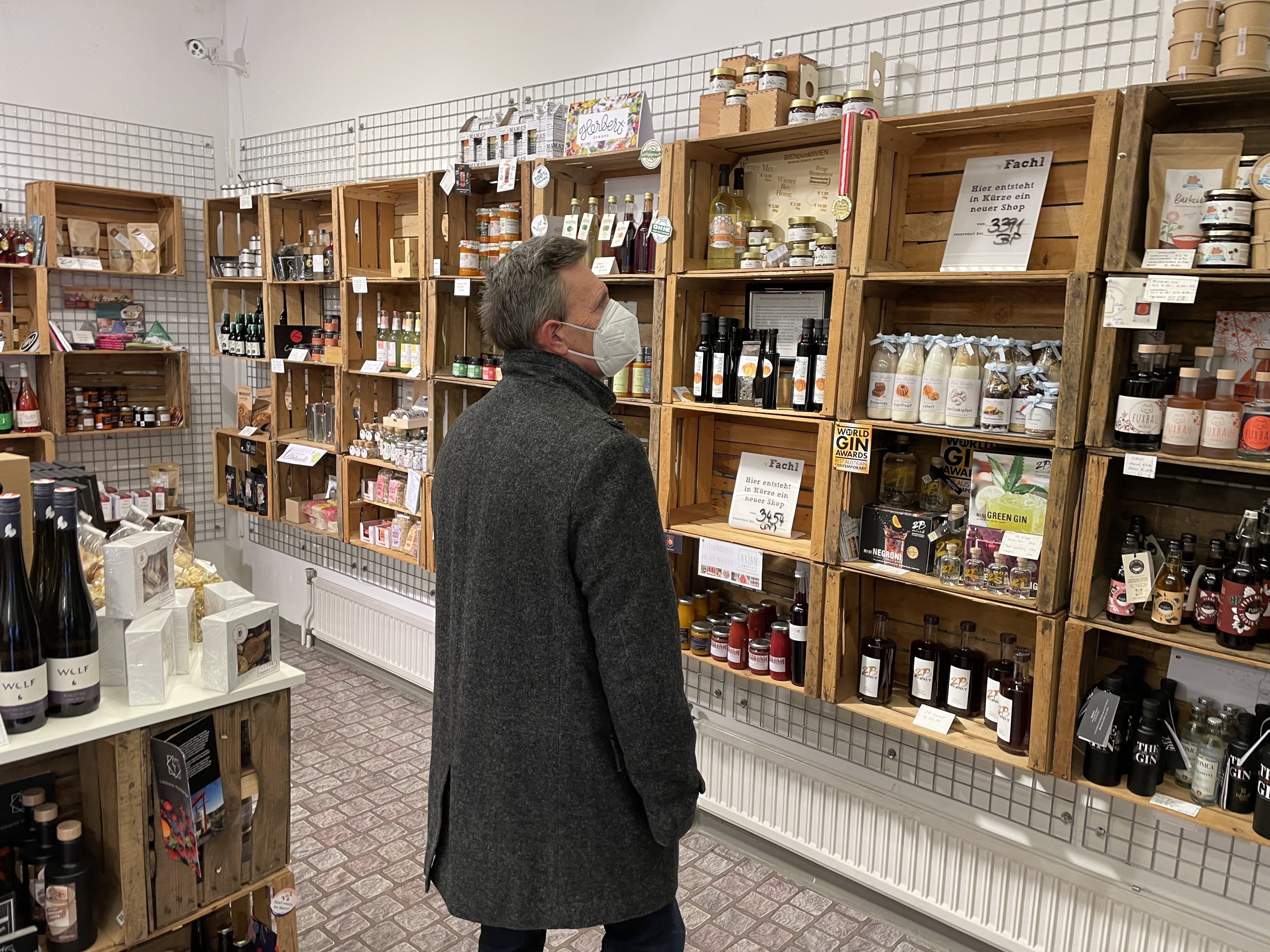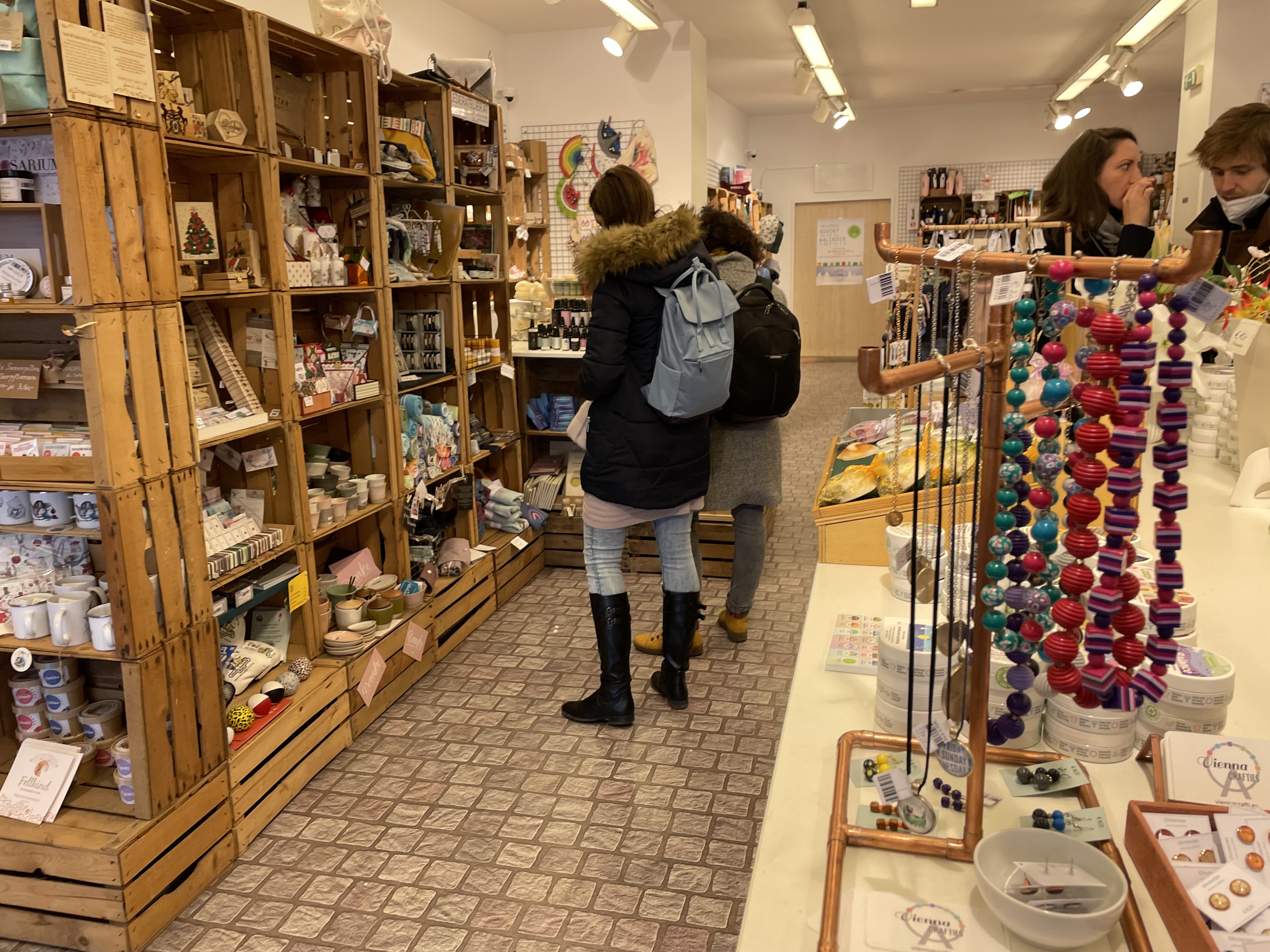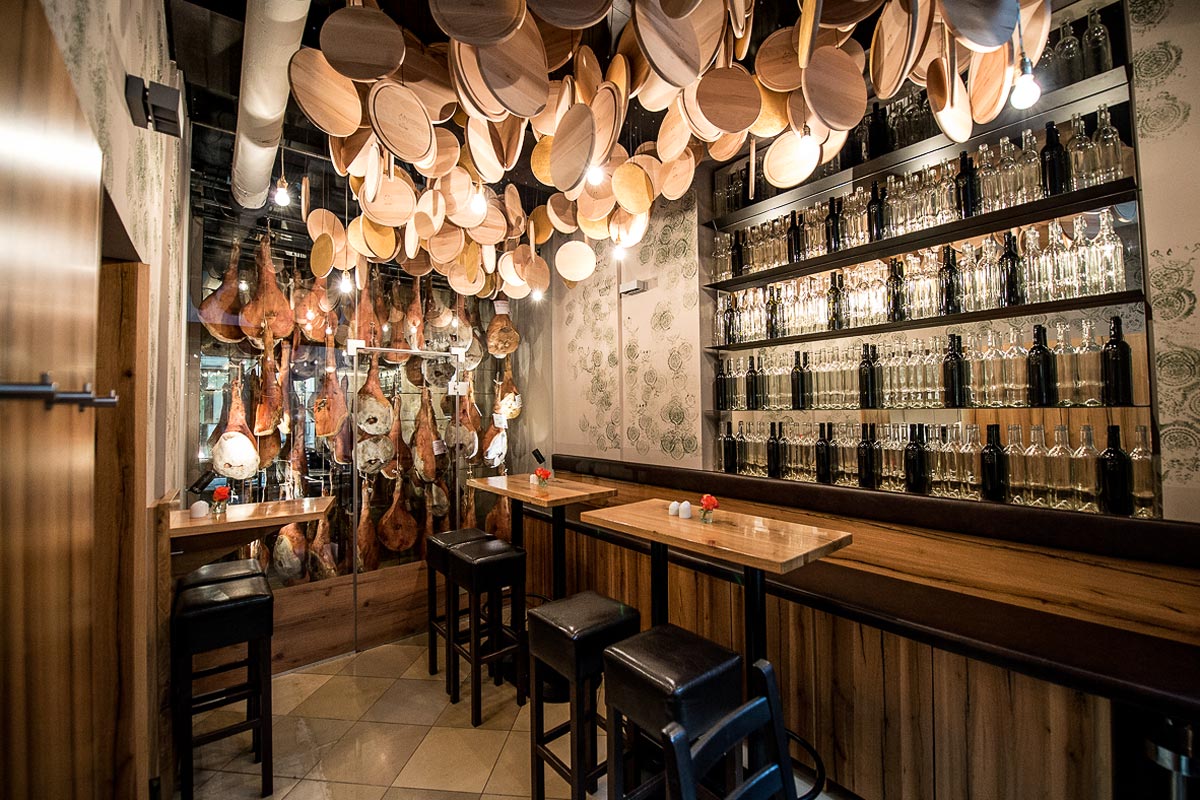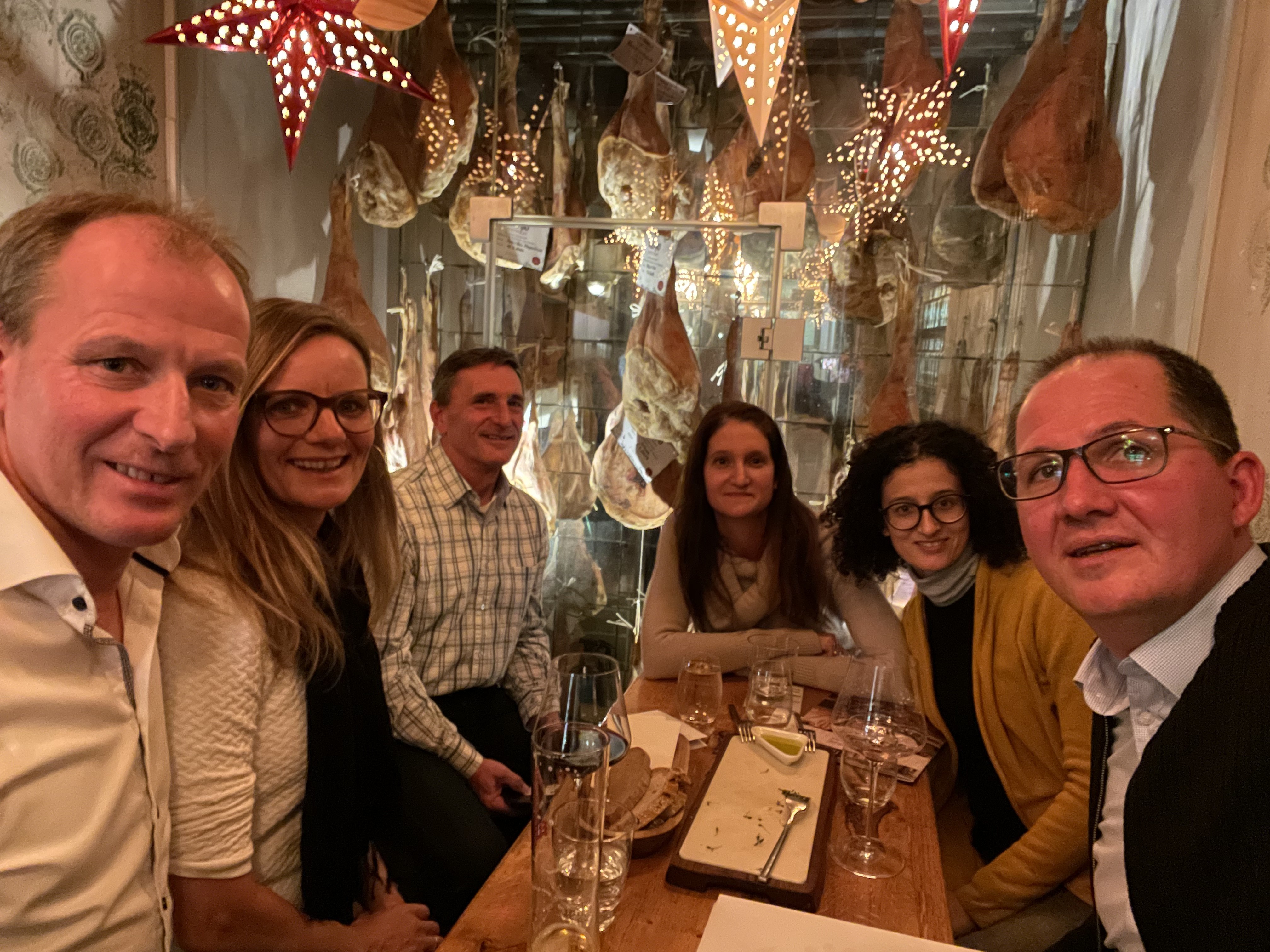Third professional day in Vienna
Balázs Kovács (GD Consulting) organized the third Vienna Professional Day on 19. November 2021, where we visited Austrian regional shops and sales channels of regional products that fit the Shop of Region concept. The shops were selected on the basis of preliminary internet research. The aim was to look for shops selling products from an Austrian region or landscape in Vienna or whose economic model is worthy of attention for the Shop of Region project. We also visited Vienna's emblematic market, the Naschmarkt, and the Vienna Christkindlmarkt.
We started the day at the Naschmarkt, one of the mainstays of Vienna's culinary offerings. This long-established market is a popular destination for tourists as well as residents. The buildings of the permanent vendors are reminiscent of the 19th century, with a wide range of small shops and stalls: fresh vegetable vendors, Turkish spice shops, organic shops representing high quality (e.g. Sonnentor). At the weekends, the market is enlarged by a significant number of vendors, with a focus on regional products and a greater number of small producers and local entrepreneurs. More well-known brands are also represented (e.g. Nordsee), but there are also several delicatessens and regional food shops in the nearby streets. In the near future, the City of Vienna wants to turn it into an indoor market hall, which is not welcomed by the current producers, vendors and residents, as it would reduce the product range, "squeeze out" smaller entrepreneurs and change the atmosphere of the popular community space.
The next stop was the product transfer container at Markta (https://markta.at/), part of an online marketplace that has been operational since 2018. Although regional products are delivered to your door, there are also two free pick-up points in Vienna. Most of the products are from within a 100 km radius of Vienna. The container on the outskirts of Naschmart is only open on certain days and times when the products ordered are delivered to the pick-up point. Unfortunately, it was not open when we visited.
Next, we visited the LGV Gärtnergschäftl (https://www.xn--lgv-grtnergschftl-uqbj.at/) shop, which aims to make products from producers around Vienna available to consumers in Vienna within a few hours. In addition to a wide range of vegetables and herbs, they sell a variety of regional products (e.g. dry pasta, ketchup, honey, meat, local wines). Fresh bakery products are prominent, as are meat and dairy products from the chilled counter. It is not only a shop, but also a café and breakfast place, and can serve simple cold dishes for lunch.
Afterwards, we went to Bauernladen Helene (https://bauernladenhelene.at/), a small shop selling Burgenland products, also near the Naschmarkt. Here you can find fresh vegetables, meat, cheese and fresh fish (trout from Mariazell). A wide range of teas, dried herbs and processed vegetables are also on offer.
Moving on, we visited Grundbira (https://www.grundbira.at/), a shop for Voralberg products, which aims to bring the flavours of Voralberg to the Viennese market. Despite its small space, it offers a wide range of products, but mostly longer shelf-life products (e.g. cheese, smoked meat, syrup, chocolate, dry cakes).
Our next stop was the Waldviertel Dorfladen (https://waldviertler-dorfladen.business.site/), a busy place that evokes the atmosphere of the region. The shop sells products with a longer shelf life (e.g. poppy seed oil, honey, wine, brandy, pestos, chocolate, dry pastry), including seasonal products (e.g. Christmas country biscuits). Fresh rye bread from Waldviertel is also available once a week. The products include not only food but also natural cosmetics and handicrafts (e.g. advent wreaths). On request, the shop manager can also put together gift baskets, which can be made to order.
Next, we visited 's Fachl (https://www.fachl.at/de-at/), a shelf-rent franchise model for small producers and artisans in Germany, Switzerland and Austria. Each shop is adapted to the supply and demand conditions of the city in which it is located, so that the range of products in each shop is not identical and the proportion of different product categories varies. The shop we visited focuses mainly on artisanal products, but also offers a wide range of long-life foods, confectionery, alcoholic products, jams, vegetable preparations, honeys and syrups.
Our last stop was Vulcanothek (https://www.vulcanothek.at), a Ham and Wine Bar with a family farm background in Styria. The menu and wine list, as well as the shop design, are very trendy and sophisticated, targeting locals with higher purchasing power and tourists. The range includes own-brand hams and cheeses and wines from Styrian producers.
The eventful programme ended in the evening, with a wealth of useful information, impressions and lessons learned. The SoR team of experts was warmly welcomed at all the venues and were happy to answer any questions you might have afterwards.

